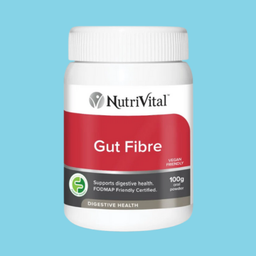Insomnia refers to poor quality or quantity of sleep and can be associated with difficulties in either falling asleep or staying asleep. The average night’s sleep for an adult is seven to eight hours, some people need 10 hours, while others can survive on as little as four.
Symptoms
Lack of sleep can cause many symptoms such as fatigue, irritability, anxiety, depression, recurrent infections, menstrual problems and low libido.
Why does it happen?
Many people experience short-term insomnia at some stage in their life and normal sleeping patterns resume when they are back in balance. When sleeping patterns are disturbed for over a month, chronic insomnia is established.
Insomnia may be caused by any of the following:
- stressful events
- acute infection
- pain, cramps
- jet lag
- change in sleeping environment
- stimulant medications
- alcohol
- anxiety, tension, depression
- hypoglycaemia, drugs
- sleep apnoea
- circadian rhythm disorders
- restless legs syndromes
- menopause
What natural therapies can help?
B group vitamins assist with proper functioning of the nervous system. They also assist with energy production therefore are best taken in the morning.
Valerian has been substantiated in various clinical studies to improve sleep quality and sleep latency – the time it takes to fall asleep. It is regarded as one of the strongest sedative herbs and improves insomnia without causing drowsiness the next day.
Panax notoginseng has been clinically shown to reduce the time taken to fall asleep and improve sleeping time.
Passionflower, hops, zizyphus and skullcap have sedative properties while chamomile is a calming, relaxing herb. They are ideal to take an hour before bedtime.
Calcium and magnesium help relieve muscle spasm or cramps and are calming to the nervous system.
Did you know?
- A nice afternoon siesta is tempting but napping during the day can interfere with sleep at night.
- Avoid caffeine, sugar and other stimulants (including alcohol) in the afternoons and evenings. Chamomile tea is a good night time beverage as it is gently relaxing. A glass of warm milk is also a good alternative to caffeinated beverages, as milk contains the amino acid tryptophan, which has sedative properties.
- Exercise and eating before bedtime can get you too energised.
- Ensure the bedroom is dark.
- Set a relaxing routine before bed eg meditation, a warm bath.
- Avoid reading books at bedtime that are related to work or are unsettling in some way.
- If you can’t get to sleep don’t lie there worrying about it, get up and do something else until you are sleepy.
- The body is a sucker for routine. Stick to a routine and get up at the same time every morning.
- Start a sleep diary if it is becoming chronic and speak to your healthcare professional.
- Essential oils help settle the nerves while creating a pleasant environment. Place a few drops essential oils in an oil burner. Use calming oils such as lavender, German chamomile and sweet marjoram.
©2014 Go Vita. Information presented is for information purposes only and is not intended to replace advice or treatment from qualified healthcare professionals. The information is not intended to treat or diagnose. Always consult your healthcare professional before taking nutritional or herbal supplements. If you are pregnant, breastfeeding, have any allergies or diagnosed conditions, always consult your healthcare professional before taking nutritional or herbal supplements.

